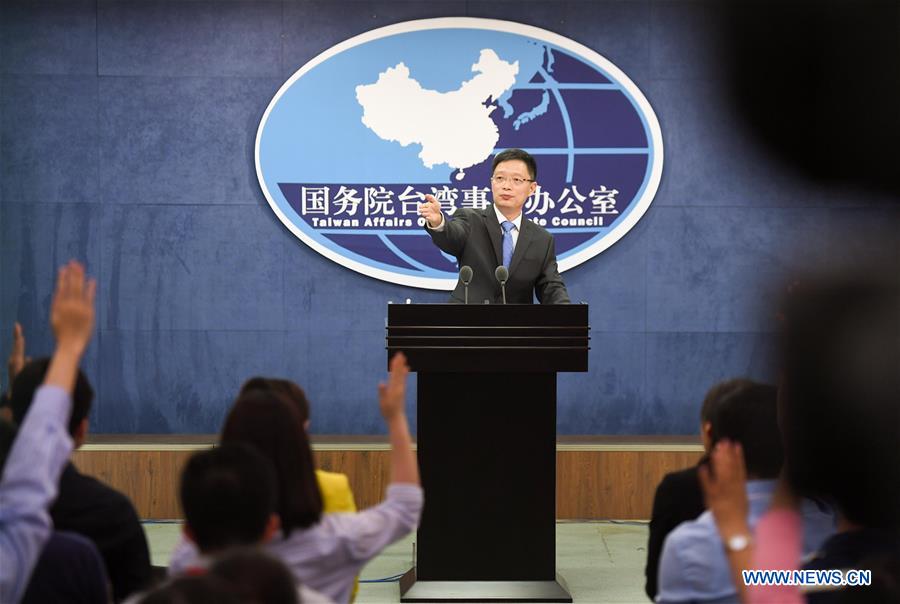
(Photo: Xinhua)
US politicians' recent increasing moves to challenge the one-China policy are highly dangerous, and China will take countermeasures in response to the provocations, Chinese experts said.
US Congressman Dana Rohrabacher put forward a resolution to the House Foreign Affairs Committee on Wednesday, urging the US to "resume formal diplomatic ties with Taiwan," and calling on the US president to abandon the one-China policy in favor of a more realistic "one China, one Taiwan policy," the Voice of America reported on Thursday.
"It is not surprising that Rohrabacher, a typical anti-China US congressman, would make such a move. After the 'Taiwan Travel Act' and the 'National Defense Authorization Act' were passed by the US Congress, more politicians like Rohrabacher have been emboldened, and they are more motivated to push their political views into real action by the US," said Diao Daming, a US studies expert and an associate professor at the Renmin University of China.
Diao said that a resolution that abandons the one-China policy is unlikely to be passed by Congress. Even if it were, the bill would still need the support of the US president. Enforcing such a policy would bring real damage to Sino-US relations.
"The voices for abandoning or adjusting the one-China policy have become louder among the US political elites recently," Diao said.
Apart from Rohrabacher, National Security Adviser John Bolton wrote an article for the Wall Street Journal in January, saying, "It is high time to revisit the 'one-China policy' and decide what America thinks it means."
"This trend is highly dangerous for Sino-US relations and regional peace, since the Chinese mainland will make no compromise on the Taiwan question," Da Wei, director of the China Institute of Contemporary International Relations' Institute of American Studies, told the Global Times on Thursday.
"China will not retaliate against every single provocative move from the US, but when the provocations have accumulated and reached a specific level, China will no longer keep silent and may take countermeasures, which might surprise the US," Da said.
Playing Taiwan card
This is not the first time that US congressmen have submitted resolutions to urge the US to resume formal diplomatic ties with Taiwan. In 2005 and 2009, former Republican Congressmen Tom Tancredo and John Linder tried to push similar resolutions, but all failed.
The US is playing the Taiwan card more frequently in a move to pressure the Chinese mainland, experts said.
"The US is trying to make obstacles for China's development. Taiwan is an unsolved problem for China, and the US can use it to divert China's strength from development," said An Gang, a member of the academic committee at the Pangoal Institution, a Beijing-based think tank.
On June 11, the US formally opened a new $255 million building housing the American Institute in Taiwan (AIT), and sent officials to the dedication ceremony, the Washington Post reported.
Geng Shuang, a spokesperson for the Chinese Foreign Ministry, said on June 12, "We are gravely concerned about relevant reports and have lodged stern representations with the US.
"By sending officials to Taiwan under whatever pretext, the US severely violates the one-China policy and three China-US joint communiqués," Geng said.
The increasing exchanges between the US and Taiwan will also affect cross-Straits relations since the Chinese mainland's retaliation may target both the US and Taiwan. US politicians' further provocations will bring no good to the people, Da said.


